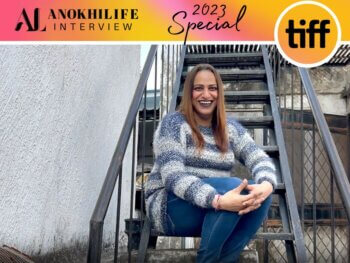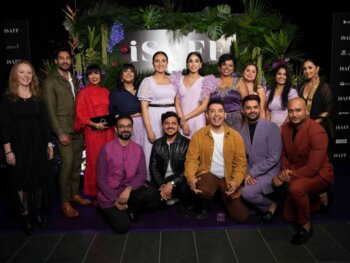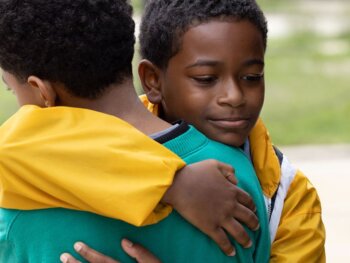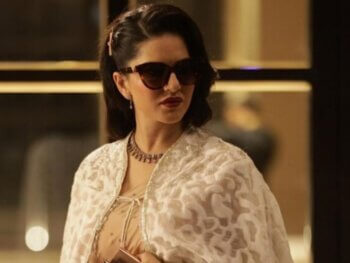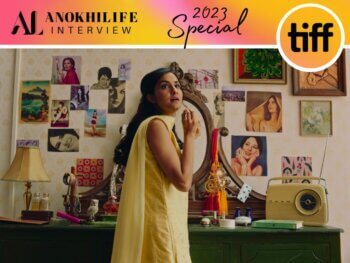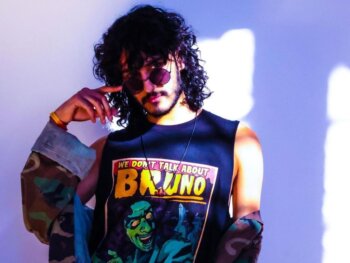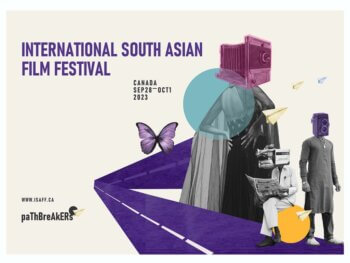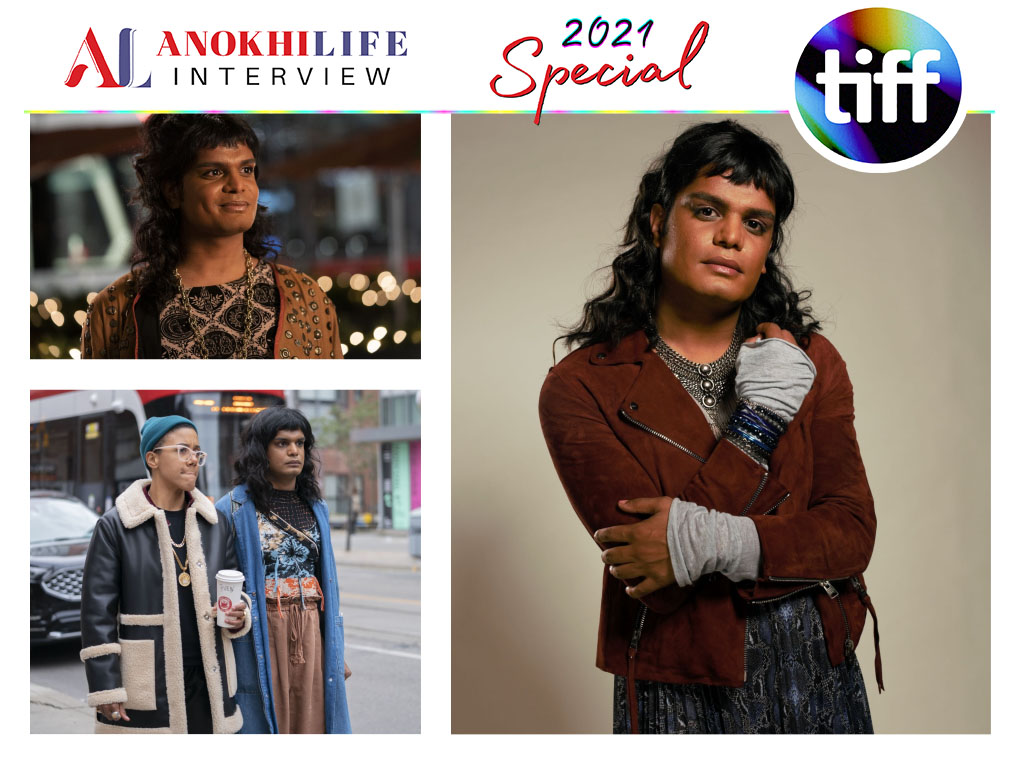
TIFF 2021: “Sort Of” Star/Co-Creator Bilal Baig Embraces The Power Of Trans Representation In Their Barrier-Breaking CBC Comedy
Entertainment Oct 05, 2021
Bilal Baig, star and co-creator of CBC‘s latest buzzy comedy series Sort Of, chats with us about the unique power that comedy holds when it comes to engaging with serious issues like gender identity, and the importance of putting trans and non-binary people in a position to tell stories, make decisions and to be seen. Buoyed by rave reviews during a special presentation at TIFF, Sort Of is in the powerful position to make history.
With both Schitt’s Creek and Kim’s Convenience having capped their runs in the last year or so, CBC is need of another breakout comedy. That’s where Sort Of comes in.
The show follows Sabi (Bilal Baig), a gender-fluid millennial bumbling through life in Toronto. Part-time nanny for a well-to-do downtown family, part-time bartender for an LGBTQ+ hotspot, full-time youngest sibling in a large Pakistani family — Sabi can’t help but feel like they’re in a constant state of flux, bouncing from one identity to another. But they tackle it all — work, romance, friendship, self-actualization — with a witty disposition.
Featured as part of TIFF 2021’s “Primetime” showcase back in September, Sort Of makes its wide debut Tuesday, October 5, on streaming service CBC Gem, before a broadcast premiere on the main network starting Tuesday, November 9. (In the U.S., it’ll air on streamer HBO Max.)
Just prior to the festival, I got the chance to speak with Canadian star/co-creator Bilal Baig about the show, the power of representation and the awesomeness of Archie Panjabi on The Good Wife.
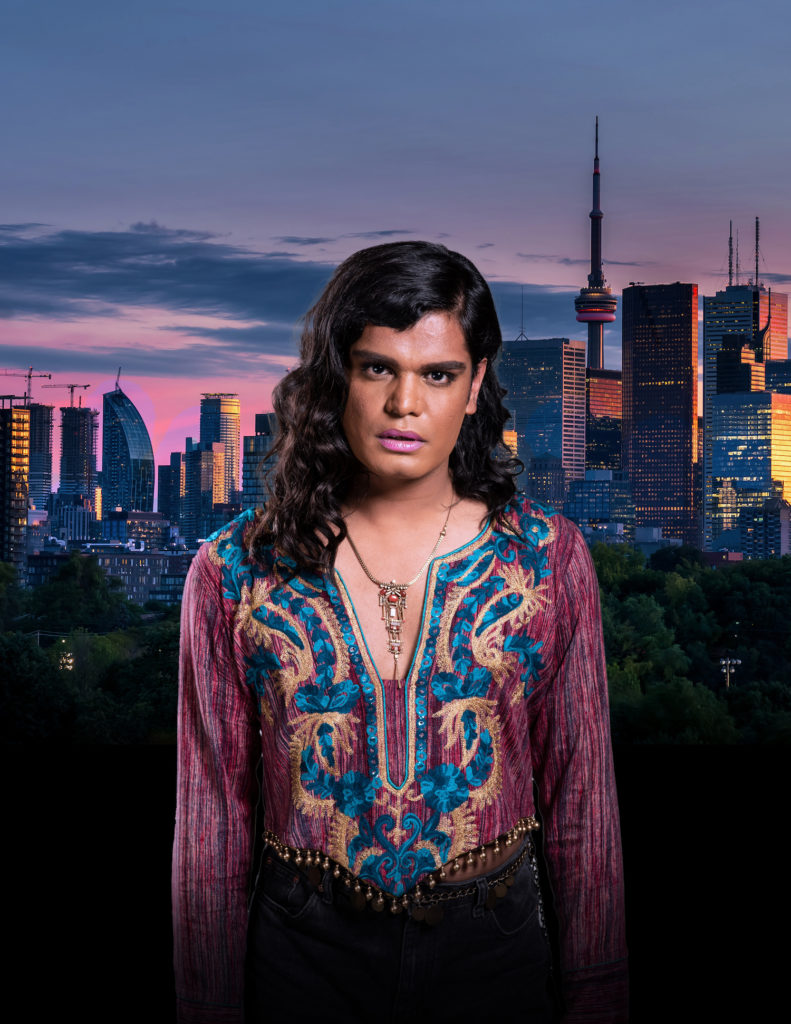
Matthew Currie: You’ve got experience in the theatre. But this is your first TV show, as both a star and a creator. Was that intimidating at all?
Bilal Baig: There was, for sure, internally — and somewhat externally — lots of hesitation around saying yes to something of this scale. But it was what the show could possibly mean to so many people that felt so worth it, and worth kind of diving in and really risking myself in ways that I really hadn’t before, artistically. I think that was one of the things that really helped get on the train of this epic undertaking, and then having an amazing team of producers and my co-creator Fab [Filippo] really being a part of helping me ease into this very strange new world that I feel like I’m in now.
MC: Looking at the final product, what are you proudest of?
BB: What we were able to achieve in terms of what the show looks like — the colours — of course the diversity, all the inclusion of trans and non-binary people in multiple roles onscreen . . . We were able to do some work towards including trans and non-binary people behind the scenes as well; of course, we’ve got more work to do. But for me, I just love the way the show holds space for queerness and trans-ness and transformation; that’s one thing to kind of understand conceptually, but then to look at the product and be like, “Oh my God, yeah. That show feels like the thing we started off and were committed to make.” That just feels so powerful.
MC: What is the power of representation, of people seeing someone onscreen they can actually identify with?
BB: One of the direct impacts I have felt is that when we start to see versions of ourselves on film or TV or through any art, I think for me it directly combats this notion of loneliness, this idea that, “I might be the only person in the world dealing with this particular thing that I’m dealing with.” And when you start to understand that the world might be bigger, or that there are other people out there that have similar identities to you or are moving through the world in similar ways, it just becomes so much less isolating. And I think that’s really healing. I think I was craving that and not knowing that I was craving that for years as a consumer of art, and television particularly. And not seeing it or not feeling it furthered me in this place of, “I might be an alien on this planet” or “If I don’t see myself, then maybe I don’t exist or I’m not worth existing.”
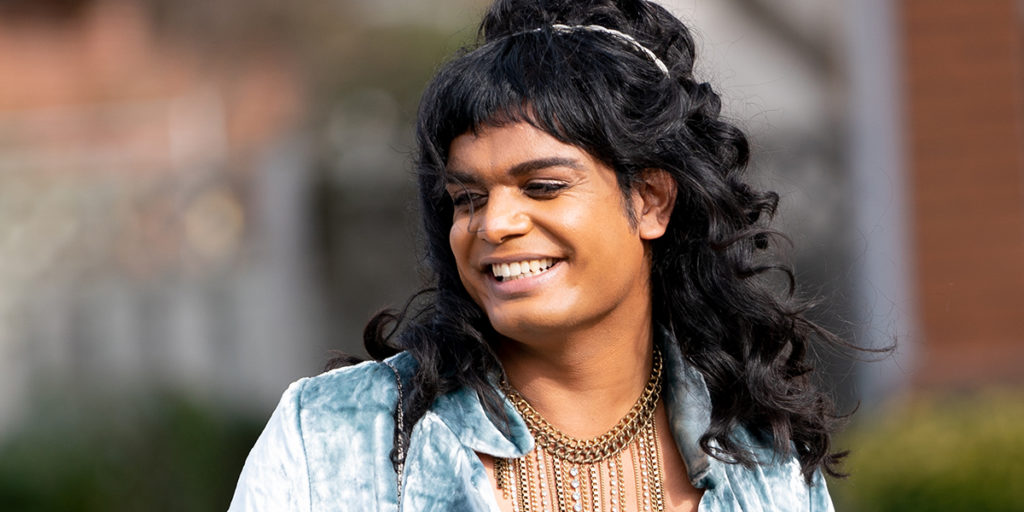
MC: Can you point to an example where representation onscreen helped you personally, as a viewer?
BB: In terms of representation on television, the first time I felt like I saw a version of myself, or something I could align myself with . . . you remember The Good Wife? Archie Panjabi’s character, Kalinda. That’s when I was like, “Oh my God!” Because she was brown, she was kissing people of multiple genders, she wore these boots that were so bitchy, and I was like, “If I’m not you, I wanna be you!” It was really lovely to see her doing great work on that show.
MC: The entertainment industry at large has been taking what one might call baby steps toward inclusion, toward representation. What do you think is the biggest obstacle to true, ideal representation?
BB: I know it really worked on our show and I just want more: to include those identities — trans, queer, non-binary — in leadership positions too, in executive, decision-making positions. Because that’s part of the authenticity audiences might receive when they’re feeling it, is there was somebody in the rooms who was making decisions . . . It’s the smallest thing, the smallest detail, but I love talking about it: [in Sort Of,] when Mom comes and she’s got the container of chicken, but it’s a yogurt container and the Urdu-Hindi word on it is “Dahi,” which is “yogurt.” For queer and trans South Asian people, we’ll know right away that there’s not yogurt in that container, because our mothers pack all their containers with chicken and curry . . . that small of a detail makes such a difference. It means that that audience was cared for in the decision-making of that one prop — and of course, all the decisions beyond that point.
MC: Do you think comedy has a unique power to engage with issues like gender identity in a savvier way than drama, to perhaps disarm people who might feel threatened?
BB: Absolutely. I think, especially with a character like Sabi, for people to be able to access them in a setting that probably feels safe, if they’re watching from their laptops or TVs in-home — it’s about inviting Sabi into your home, basically. And the more time you spend with them, if you start to find them particularly funny or charming or understandable, I think that has the power to change the world . . . that we invite people like Sabi into our homes and then we’re able to see them for who they are and not this idea that we might have or that somebody else told us about a particular kind of lived identity. The comedy of it is what eases people in.
Main Image Photo Credit: CBC
Matthew Currie
Author
A long-standing entertainment journalist, Currie is a graduate of the Professional Writing program at Toronto’s York University. He has spent the past number of years working as a freelancer for ANOKHI and for diverse publications such as Sharp, TV Week, CAA’s Westworld and BC Business. Currie ...




































































































